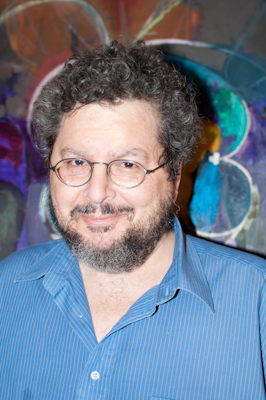 Have you ever wondered where we’re going? What’s in store
for us when technology becomes an inevitable constant in all aspects of human
life? The social norms expected of us at that point? Will society become
something devoid of morals, as we’ve seen it portrayed in recent sci-fi media? What’s
stopping technology from becoming self-aware, something we can no longer
control? Or something that's controlled by people hoping to brainwash us?
Have you ever wondered where we’re going? What’s in store
for us when technology becomes an inevitable constant in all aspects of human
life? The social norms expected of us at that point? Will society become
something devoid of morals, as we’ve seen it portrayed in recent sci-fi media? What’s
stopping technology from becoming self-aware, something we can no longer
control? Or something that's controlled by people hoping to brainwash us?  David Gelernter, the computer scientist targeted by the Unabomber
in 1993, says
in his manifesto: “we don't believe in
technological change (we only say we do), we accept bad computer products with
a shrug … instead of demanding that they be fixed and changed.” What Gelernter
points out here is that companies aren’t held accountable as much as they should be
over low quality products. The potential for profits vastly outweighs the need
for quality in the eyes of many companies, and this truth hasn’t changed, even decades after the publication of his manifesto.
David Gelernter, the computer scientist targeted by the Unabomber
in 1993, says
in his manifesto: “we don't believe in
technological change (we only say we do), we accept bad computer products with
a shrug … instead of demanding that they be fixed and changed.” What Gelernter
points out here is that companies aren’t held accountable as much as they should be
over low quality products. The potential for profits vastly outweighs the need
for quality in the eyes of many companies, and this truth hasn’t changed, even decades after the publication of his manifesto.
It’s hard to tell what will happen in the future, considering how
much power corporations currently have, and seeing politicians take
donations from those companies, leading to even less freedoms for consumers. I personally
believe that everything will be okay, that our future is hopeful and won’t
eventually lead to a boring, dystopian society. Something that recently reinvigorated my hope for the future is Gelernter’s "cybersphere" prediction in his
manifesto. The idea that the internet will evolve into a cybersphere is probably the
closest thing we’ll have to a hopeful technological future. A future where
technology is uncontrollable yet simple enough that the idea of it being able to form its own conciousness would
be unlikely.
 |
| Self-taught terminators are unlikely, please relax |
If Gelernter’s idea of the cybersphere does come to
fruition, I doubt we have anything to worry about. Sure, the premise of rouge singularities leading to
bloodthirsty robots is a possibility, but that hypothetical would have to be created
and programmed by someone. Even then, whatever the cybersphere is would have failsafe’s and firewalls to prevent such an influence from taking hold. Gelernter
caught my attention with his third point as well, saying that “Everything will
change.” And I agree with him. I’ve had this idea in my head for as long as I
can remember, and it’s a phrase that I’m trying to live by: “I want to see the
world move forward.” Until technology is no longer a luxury,
we’ll just have to wait and see what happens.
Hi Nate, nice post. You did a good job at making the post engaging by using pictures and organizing the layout. I think you could improve your introduction by including fewer questions and expanding on some of the ideas you brought up instead. For example, when you mention “recent sci-fi media” you could give specific examples that segway into the other questions you plan to address. Since it’s been more than 20 years since Gelernter wrote his manifesto, you could give specific examples of what has been proven true/false and use that to support your arguments.
ReplyDeleteHello Nate! I enjoyed reading your blog post! I thought you did a great job of grabbing the reader's attention by starting with some questions. Though I do think that they could be formatted a different way to be easier to read, or they you can ask fewer questions. It was clear to me what concepts you were referring to from Gelernter. It was nice to receive an introduction about Gelernter and then have his ideas built upon by your own opinions and thoughts. Although it is nice to know what Gelernter predicts and its relevance to the present society, I think it would be interesting to hear more about your thoughts on the future and what you see.
ReplyDelete